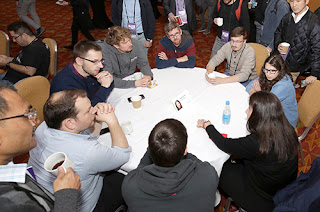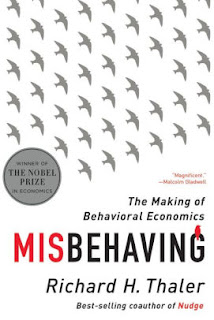Community adoption of new practices can mean a lot of things. From getting a small team to try a new methodology or tool to convincing the world that a product or service is needed.
In 1996, Robert Metcalfe was awarded the IEEE Medal of Honor for "exemplary and sustained leadership in the development, standardization, and commercialization of Ethernet." The story of how Ethernet came to be follows the 8 steps of essential practices below. I've added headings for what departments typically handles each practice in a large company. You don't have to have different people or departments. I find it helpful to get into the mindset of each role when implementing a specific task.
- Product Management
- Sensing -- giving voice to a concern over a breakdown in the community
- Envisioning -- design a compelling story about a future without the breakdown
- Development
- Offering -- committing to do the work to produce that feature
- Sales
- Adopting -- gaining commitments from early adopters to join the innovation for a trial period
- Sustaining -- gaining commitments from majority adopters to join the innovation for an indefinite period
- Implementation
- Embodying -- working with the community until the new practice is fully embodied, ordinary, and transparent
- Navigating -- moving ever closer to the goal despite surprises, contingencies, and obstacles
- Marketing
- Mobilizing -- building a network of supporters of the innovation from within dispersed communities
Denning, P., "Avalanches Make Us All innovators," Communications of the ACM, Vol. 63, No. 9 (Sept 2020), 32 - 34.
Sorry, I don't have a reference for Metcalfe's Ethernet story. I heard him talk about it at a conference in 2015 or 2016.

